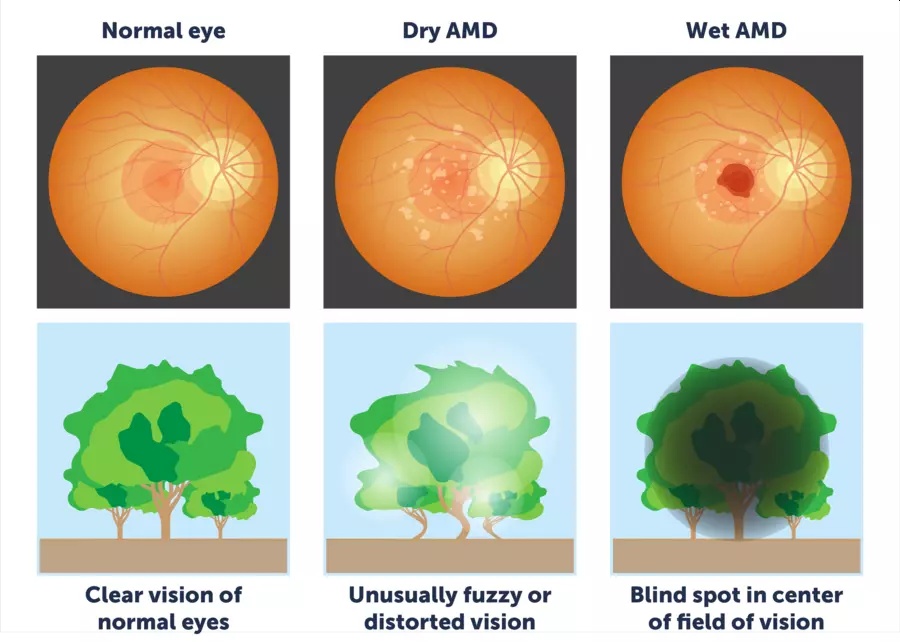Age-Related Macular Degeneration (AMD)
What is AMD?
Age-related Macular Degeneration, or AMD, is an eye condition that affects the macula, the part of the retina responsible for central vision. This condition can lead to loss of clear, sharp vision, making activities like reading and recognizing faces difficult.

Types of AMD:
- Dry AMD: The more common form, characterized by the presence of drusen (yellow deposits under the retina) and thinning of the macula.
- Wet AMD: Less common but more severe, involving the growth of abnormal blood vessels under the retina, which can leak and cause rapid vision loss.
Symptoms of AMD:
- Blurry or fuzzy vision
- Difficulty with reading or any close-up work
- Dark, blurry areas or white out spots in your central vision
- Straight lines appearing wavy or crooked
- Loss of bright colors
Risk Factors:
- Age (over 50)
- Family history of AMD
- Smoking
- Obesity
- High blood pressure or cardiovascular disease
- Prolonged sun exposure
Diagnosis:
We use:

- Dilated Eye Exam: To check the health of your retina and optic nerve.
- Amsler Grid Test: For detecting early signs of vision distortion.
- Optical Coherence Tomography (OCT): Provides high-resolution cross-sectional images of the retina.
- Fluorescein Angiography: For wet AMD, to visualize blood flow in the retina.
Treatment and Management:
Dry AMD:

- Nutritional supplements (AREDS formula) with vitamins C and E, zinc, copper, lutein, and zeaxanthin.
- Lifestyle changes like quitting smoking, diet, and exercise.
Wet AMD:
- Anti-VEGF injections to slow the growth of new blood vessels.
- Photodynamic therapy (PDT) or laser treatment in some cases.
Prevention and Early Detection:
- Regular eye exams, especially if you’re over 50 or have risk factors.
- Protect your eyes from UV light with sunglasses.
- Maintain a healthy diet rich in leafy greens, fruits, and fish.
Why Choose Us?
At our clinic, we offer:
- State-of-the-art diagnostic tools
- Personalized treatment plans
- Continuous support for managing your eye health
